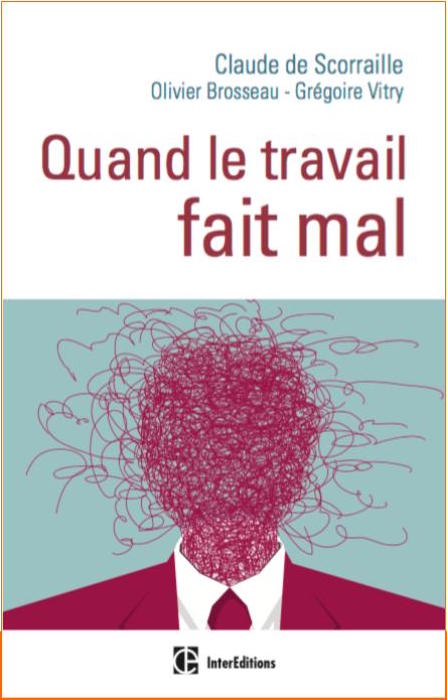 Not talking about your suffering with your colleagues is not always the bravest choice. “What the eyes don't see, the heart doesn't care” isn't always the right strategy. If taken to extremes, the consequences can sometimes be very dangerous. In When work hurts, the authors present to us the dangers (and the solutions) of a hidden and never revealed suffering.
Not talking about your suffering with your colleagues is not always the bravest choice. “What the eyes don't see, the heart doesn't care” isn't always the right strategy. If taken to extremes, the consequences can sometimes be very dangerous. In When work hurts, the authors present to us the dangers (and the solutions) of a hidden and never revealed suffering.
Cédric is an example of silent suffering at work, which is difficult to detect. No serious warning signs, but when the saturation threshold is reached, disproportionate reactions can have the effect of a bomb. He confides to us: “One day, I was scared to death: my morale was low, I was in my kitchen peeling vegetables, and I had a knife in my hand. And there, it was dazzling, in a second, I had a vision: what if I stuck it in my hand or in my stomach? I felt bad. I got worried and I decided to go see the HR department and get out of this job as quickly as possible, to see something else, quickly, to do something else, to find something else in the box as quickly as possible. ".
Among all the constraints he has to deal with, Cédric focuses on the relationship he has with Julia. The more effort and compromise he makes in the face of his partner's behavior that does not suit him, the more he behaves as if everything is fine; which reinforces Julia in her attitude: she continues to act as she sees fit. They find themselves embroiled in a high-tension interaction, where each ends up complaining about the other. He takes it upon himself, complains to himself, ruminates on the lack of recognition, without saying anything; but the non-verbal expresses itself: it blows, it speaks very little with her. Signals that Julia perceives as ill will, which she will eventually complain about. Exchanges are increasingly limited in their relationship. From Cedric's point of view, Julia is ungrateful and obnoxious; from Julia's point of view, Cédric becomes painful.
You can find the book "When work hurts" on Amazon



